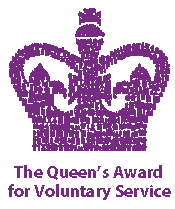Safeguarding policy and procedure statement – how we protect young and vulnerable people
Objectives and activities of the Centre
The Holly Lodge Centre provides an opportunity for people of all ages and abilities to enjoy and learn from a series of hands on experiences focusing on the rich natural environment in the unique setting of Richmond Park. These activities range from minibeast safaris to Victorian activities and are linked to the National Curriculum for schools. All kinds of groups are catered for and to date these have included special schools, day centres, mainstream schools, holiday clubs, hospitals and many other kinds of organisations. Activities are adapted to help visitors gain maximum benefit and enjoyment from the Park.
As well as the outdoor activities (e.g. pond dipping, habitat trail, nature trail, countryside code trail), groups can also experience and learn about life and society in Victorian times by visiting ‘Mrs Sawyer’s Kitchen’, which provides an authentic glimpse of the Victorian age, attend Mrs Sawyer’s Dame School or make pills and powders in Mr Palmer’s Victorian Chymist shop.
The Centre is run as a charity in collaboration with the Royal Parks and trained volunteers play a vital role in its functioning. The Centre is located at Holly Lodge, the Park’s administrative headquarters.
The Centre manager (Designated Safeguarding Officer) is Anna King – aking@thehollylodgecentre.org.uk 0208 940 8730.
In this policy…
- the Centre acknowledges that protecting and ensuring the safety of children and young people, i.e. those who have not yet reached their eighteenth birthday, is everyone’s responsibility;
- the Centre acknowledges that protecting and ensuring the safety of people at risk of any age is everyone’s responsibility;
- the Centre subscribes to Child Protection and Policy and UK Legislation and guidance;
- the Centre Manager oversees implementation of policy;
- the Centre has a Code of Practice;
- all staff and volunteers working with children and adults at risk undergo a Disclosure and Barring Service check with the Home Office
- all staff and volunteers wear an ID badge at all times.
Definitions
A ‘child’ is defined as meaning a person under the age of 18
An adult at risk of harm (adult at risk) is defined as:
- having needs for care and support
- experiencing, or being at risk of, abuse or neglect; and;
- as a result of those care and support needs is unable to protect themselves from either the risk of, or the experience of, abuse or neglect.
The government guidance ‘Working together to safeguard children’ categorises abuse as:
Physical
This includes hitting, shaking and throwing or otherwise causing physical harm.
Emotional
This is the persistent emotional ill treatment of a person that can cause severe and persistent adverse effects on that person’s emotional development.
Sexual
This involves forcing or enticing a child or young person to take part in sexual activities whether or not the child or young person is aware of, or consents to, what is happening. Abuse of adults at risk of harm includes participation in sexual acts to which the person does not consent, cannot consent or is pressurised into consenting.
Neglect
The persistent failure to meet a child, young person’s or vulnerable adult’s basic physical and psychological needs likely to result in the severe impairment of the persons health or development.
Children and adults at risk of harm – a Policy statement
The Management of the Holly Lodge Centre (“the Centre”) recognises that the Centre is not a child protection agency, however if children are to be truly protected it is essential that we all contribute to the work of those with direct responsibility for the protection of children. Protecting and ensuring the safety of children and young people, i.e. those who have not yet reached their eighteenth birthday, is everyone’s responsibility. It is the duty of all paid staff and volunteers to safeguard children and young people and adults at risk. This policy, together with the related procedures and the Code of Practice establish the roles and responsibilities of management and staff (1).
In relation to child protection, the approach the Centre will take is based on, and reflects, the principles of UK legislation and guidance (2):
- the welfare of the child or vulnerable adult is the paramount consideration
- all children and adults at risk of harm, regardless of age, disability, gender, racial or ethnic origin, religious belief and sexual identity have a right to protection from harm or abuse.
The Management has designated the post of Centre Manager as responsible for overseeing the implementation of this policy and the related procedures on their behalf. The Centre manager will be the designated safeguarding officer. It is, however, the responsibility of the Trustees of the Centre to ensure that all staff, for whom they are responsible, understands the importance of this policy and the related procedures. They must also ensure that any contractors, agents or others whom they engage to undertake duties on their behalf and with whom they work in conjunction or who work within the Centre with their permission, which would involve contact with children or adults at risk of harm, understand and comply with the policy, as appropriate.
Our responsibility to contribute to the protection of children and adults at risk of harm should not be limited to those with whom we have formal working relationships. It extends to all children and adults at risk of harm with whom we come into contact through our work, regardless of the nature of that contact. Through their work, some staff may come into contact with significant numbers of children and adults at risk of harm each and every year. By being vigilant and acting where concerns exist, we can play an important part in their protection.
Although the Centre has, in law, no express or distinct statutory duties with regard to the protection of children and adults at risk of harm, staff already in, and new staff being recruited to, posts involving direct contact with children and adults at risk of harm will be subject to DBS checks, in accordance with best practice. These posts will be identified and job descriptions added which refer to the post as ‘working with children or adults at risk of harm’.
In operating this policy, staff must also be aware that within the field of child protection (and adults at risk of harm) there is no confidentiality, and any concerns relating to abuse must be reported as outlined in the procedures.
A Code of Practice provides staff with guidelines which will not only help to protect children and adults at risk of harm, but will also help to identify any practices which could be mistakenly interpreted and perhaps lead to false allegations of abuse. Staff should familiarise themselves with this and if it is necessary to carry out practices contrary to it, only do so after discussion with, and the approval of, the Centre Manager. The code of practice informs staff and volunteers of the safeguarding procedures.
This and other policies are reviewed on a regular basis and in consultation with relevant persons.
Remember that non-action is never an option in child or vulnerable adult protection.
This policy does not stand alone, but is part of the procedures and policies of the Centre. These include the following;
- equal opportunities policy,
- recruitment, induction, training, supervision and grievance procedures,
- code of conduct,
- health and safety policy,
- learning policy.
(1) Within this document, the term ‘staff’ refers to any person, either paid or unpaid, carrying out duties on behalf of, or in conjunction with the Centre, in relation to the protection of children or vulnerable adults, with whom their work brings them into contact.
(2) The Children Act 1989; The Human Rights Act 1998; The Protection of Children Act 1999; The Sexual Offences (Amendment) Act 2000; The Criminal Justice and Court Services Act 2000; Working Together to Safeguard Children, Dept. of Health 2013; Caring for the Young and Vulnerable, Home Office 1999; The Education Act 2002; Children’s Act 2004; Safeguarding Vulnerable Groups Act 2006; Protection of Freedoms Act 2012.
Responding to Incidents or Disclosures
The Designated safeguarding officer for the Holly Lodge Centre is the Centre Manager.
Suspicion of Abuse
If staff or volunteers see or suspect abuse of a child, young person or adults at risk of harm, they will take appropriate action and report their suspicions to the Designated Safeguarding officer (DSO). The DSO will be trained to respond appropriately. A written report of the incident will be made. The person with legal responsibility for that individual will also be informed unless they are implicated in the suspected abuse.
Disclosure
In circumstances where children or vulnerable adults disclose details of abuse to a member of the Holly Lodge Centre staff or a volunteer, the allegation will be taken seriously and handled without delay in a sensitive manner. The DSO will be informed as will the person with legal responsibility for the individual, unless they have been implicated in the disclosure. Advice on the involvement of the police should be sought from the Centre Manager (DSO), Head of community engagement and education for the Royal parks or the Royal Parks, Park Manager.
Rights and Confidentiality
Staff or volunteers who are the subject of a complaint or allegation of abuse will be informed of their rights by the Chair of Trustees. Individuals involved in the allegations or complaint will be reminded of their obligations to maintain strict confidentiality, whilst the allegation is investigated.
Policy review
The policy will be reviewed annually by the Centre Manager and any appropriate changes made if any new legislation comes into place.
Reviewed February 2023


